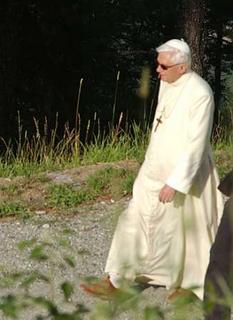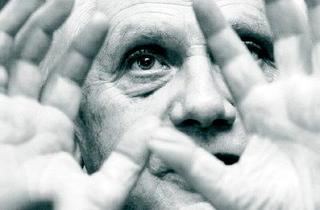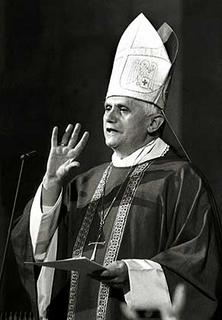
Yours truly will be off on holiday now, till 18 September. Berlin, Vienna, Prague, Dresden, and back to Berlin. "There was and is another Germany."
Exploring the Truth Goodness and Beauty of God in art, music, poetry, literature and the prayer-life of the Roman Catholic Liturgy

 “The sheltering gaze that love casts upon being & essence, and its insight into the true nature of spousal love and the genuine love of children in the hearth of the triune fire of the family, its insight into genuine friendship, and genuine love of country, in the danger of its exposure and trials, in its fragmentation into hatred, betrayal, and death, and in its mysterious transfiguration beyond all conceivable success, preserves what we also find sheltered in the golden core of myths and mythical religions, and what remains present even in our ostensibly demythologized world!”
“The sheltering gaze that love casts upon being & essence, and its insight into the true nature of spousal love and the genuine love of children in the hearth of the triune fire of the family, its insight into genuine friendship, and genuine love of country, in the danger of its exposure and trials, in its fragmentation into hatred, betrayal, and death, and in its mysterious transfiguration beyond all conceivable success, preserves what we also find sheltered in the golden core of myths and mythical religions, and what remains present even in our ostensibly demythologized world!” As the day now approached on which she was to depart this life (which day Thou knewest, we did not), it fell out--Thou, as I believe, by Thy secret ways arranging it--that she and I stood alone, leaning in a certain window, from which the garden of the house we occupied at Ostia could be seen; at which place, removed from the crowd, we were resting ourselves for the voyage, after the fatigues of a long journey. We then were conversing alone very pleasantly; and, "forgetting those things which are behind, and reaching forth unto those things which are before," we were seeking between ourselves in the presence of the Truth, which Thou art, of what nature the eternal life of the saints would be, which eye hath not seen, nor ear heard, neither hath entered into the heart of man. But yet we opened wide the mouth of our heart, after those supernal streams of Thy fountain, "the fountain of life," which is "with Thee; " that being sprinkled with it according to our capacity, we might in some measure weigh so high a mystery.
As the day now approached on which she was to depart this life (which day Thou knewest, we did not), it fell out--Thou, as I believe, by Thy secret ways arranging it--that she and I stood alone, leaning in a certain window, from which the garden of the house we occupied at Ostia could be seen; at which place, removed from the crowd, we were resting ourselves for the voyage, after the fatigues of a long journey. We then were conversing alone very pleasantly; and, "forgetting those things which are behind, and reaching forth unto those things which are before," we were seeking between ourselves in the presence of the Truth, which Thou art, of what nature the eternal life of the saints would be, which eye hath not seen, nor ear heard, neither hath entered into the heart of man. But yet we opened wide the mouth of our heart, after those supernal streams of Thy fountain, "the fountain of life," which is "with Thee; " that being sprinkled with it according to our capacity, we might in some measure weigh so high a mystery. 
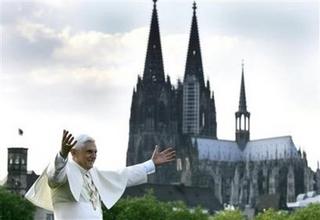
 "I know that you as young people have great aspirations, that you want to pledge yourselves to build a better world. Let others see this, let the world see it, since this is exactly the witness that the world expects from the disciples of Jesus Christ; in this way, and through your love above all, the world will be able to discover the star that we follow as believers.
"I know that you as young people have great aspirations, that you want to pledge yourselves to build a better world. Let others see this, let the world see it, since this is exactly the witness that the world expects from the disciples of Jesus Christ; in this way, and through your love above all, the world will be able to discover the star that we follow as believers. 
 Could every day be like this? People from all over the world, side by side, all offering their love and adoration to God? A symphony of diversity in communion? The sentiments of the Schiller Ode to Joy, as set by Beethoven, actually taking place? Peace on earth, almost heaven on earth? All real, historical, visible, because God has become Man in the person of Jesus Christ and has gathered His people to Himself? All with us, because Jesus Christ has called His Church from all the nations, and He has given us the visible symbol of witness and unity in the person of St Peter? All still with us, because Pope Benedict XVI, the holder of that Petrine office, still gives such witness and still brings us all together, diversity in unity, this symphony of praise, this union in communion?
Could every day be like this? People from all over the world, side by side, all offering their love and adoration to God? A symphony of diversity in communion? The sentiments of the Schiller Ode to Joy, as set by Beethoven, actually taking place? Peace on earth, almost heaven on earth? All real, historical, visible, because God has become Man in the person of Jesus Christ and has gathered His people to Himself? All with us, because Jesus Christ has called His Church from all the nations, and He has given us the visible symbol of witness and unity in the person of St Peter? All still with us, because Pope Benedict XVI, the holder of that Petrine office, still gives such witness and still brings us all together, diversity in unity, this symphony of praise, this union in communion?
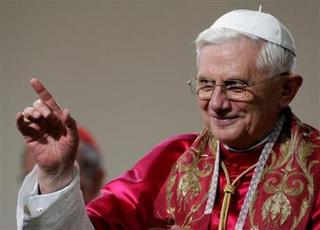
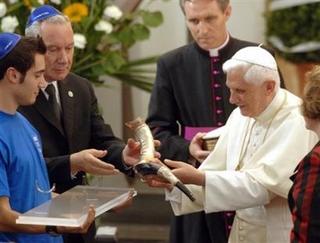 And he said to the Jewish community in Cologne:
And he said to the Jewish community in Cologne:
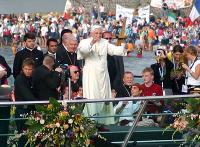
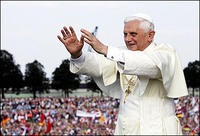



 A year ago, Pope John Paul the Great describe the Magi to the Youth of the world and compared the Journey of the Magi to the pilgrimage of the world's Youth to Cologne:
A year ago, Pope John Paul the Great describe the Magi to the Youth of the world and compared the Journey of the Magi to the pilgrimage of the world's Youth to Cologne: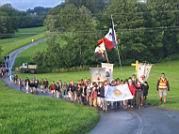
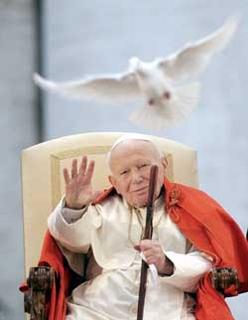

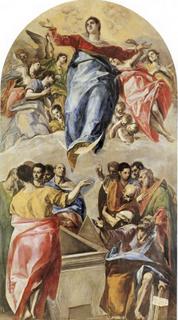

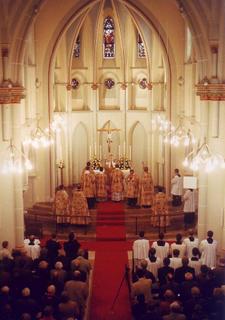

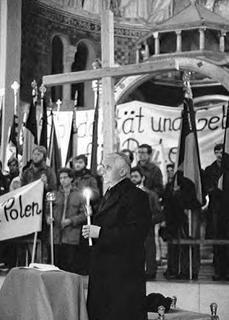

 The arrow of the beautiful can guide the mind to the truth: Bach, Rublëv
The arrow of the beautiful can guide the mind to the truth: Bach, Rublëv
